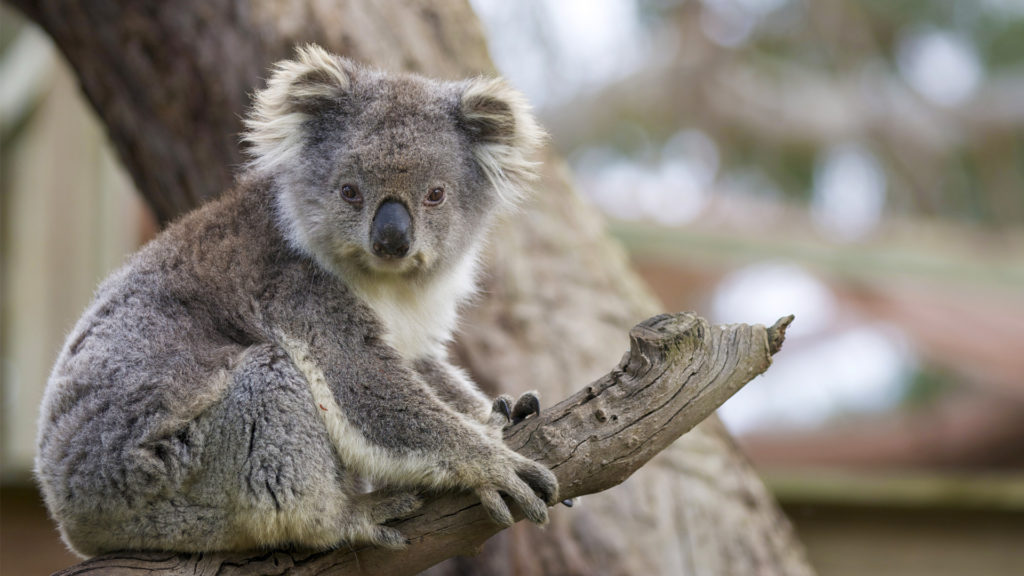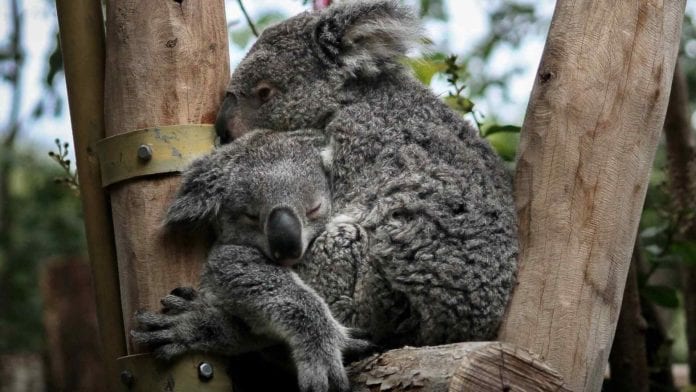Evidence of ancient retrovirus infections is commonly found in the genomes of many vertebrates. This indicates that the infection came about millions of years ago and has now been neutralised.
According to a new study by the Leibniz Institute for Zoo and Wildlife Research, Koalas are getting infected with a cancer-causing virus. The study, published in Nature Communications says that sometime in the last 50,000 years, the koala retrovirus (KoRV) infected the sperm cells or eggs of koalas. Now, the offsprings of koalas carry this virus in their cells.
The virus enters the DNA of the infected cell, near spots linked to cancer. The whole koala population in New South Wales and Queensland are found to be carrying copies of the koala retrovirus in their genome.
Cancer in Koalas
The authors explained that “Retroviruses are insertional mutagens, affecting the host in multiple potentially deleterious ways, including the disruption or alteration of gene expression. The ongoing conflict between virus and host (sometimes termed a retroviral ‘invasion’ of the host germline), unfolds over millions of years, during which time proviruses can frequently reintegrate in the host genome causing further germline mutations.”

The team previously found that old retroviruses in the koala genome can lead to the degradation of KoRV. The researchers said that the koalas are in a race to pull through the effects of koala retrovirus long enough for the virus to be degraded.
In northern Australia, a high frequency of lymphoma, leukaemia, and other cancers among koalas is observed. Using DNA sequencing, the researchers found multiple links between KoRV and the genes which are known to be involved in the kinds of cancer found in wild koalas.
Professor Alex Greenwood, head of the Department of Wildlife Diseases at the Leibniz-IZW said, “Each koala carries around 80 – 100 inherited copies of KoRV in its genome. The genomic locations of most of these are not shared between koalas, indicating a rapid expansion and accumulation of KoRV copies in the population.”
“Each time a retrovirus copies and re-inserts itself into the genome, it causes a mutation, potentially disrupting gene expression, which could be detrimental to the host.” It was also found that tumour tissues contain several new copies of a koala retrovirus, which indicates that the virus is more active in tumour cells. In addition to this, the virus is usually located close to genes involved with cancer.
Granted other factors may also contribute to the development of cancer in koalas, the mutational burden from KoRV increases the probability of cells becoming cancerous and may also lessen the time for cancer to develop. Co-author of the study Gayle McEwen said, “In summary then, we find multiple links at the genomic level between cancer-related genes and KoRV, revealing ways in which KoRV underlies the high frequency of cancer in koalas.”
Koalas already face several environmental and health issues, like habitat loss due to bush fires, dog attacks and chlamydial infections. At a time like this, the results of the study become even more concerning. They are declared ‘vulnerable’ by the IUCN Red List that tracks at-risk animals.
Further Reading:


